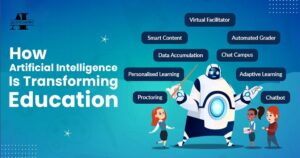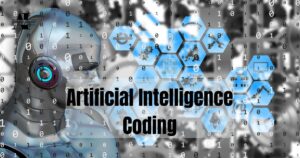In the ever-evolving landscape of modern business, leveraging technology is essential for staying competitive. Artificial intelligence (AI) has emerged as a game-changer, and Microsoft AI stands out for its robust offerings that empower organizations to innovate and grow. This comprehensive exploration delves into how Microsoft AI enhances operational efficiency, drives innovation, and transforms industries, ultimately facilitating significant business growth.
Understanding Microsoft AI
What is Microsoft AI?
Microsoft AI refers to tools, frameworks, and services that help businesses integrate artificial intelligence into their operations. This suite of solutions includes everything from machine learning and data analytics to natural language processing and computer vision. By harnessing these technologies, organizations can make data-driven decisions, automate processes, and enhance customer experiences.
Key Components of Microsoft AI
- Azure AI:
Azure AI is a cloud-based platform that provides businesses with scalable AI services. It includes:- Cognitive Services: APIs that allow developers to add intelligent features, such as image and speech recognition, to applications without deep AI expertise.
- Machine Learning: A comprehensive set of tools for building, training, and deploying machine learning models, enabling organizations to create custom AI solutions.
- Power BI:
Power BI is a powerful analytics tool that turns raw data into interactive visualizations. It helps businesses uncover insights and trends through:- Real-time Data Analysis: Users can quickly monitor performance metrics and respond to business changes.
- AI Capabilities: Built-in AI features allow users to perform advanced analytics, such as forecasting and anomaly detection.
- Microsoft 365 Copilot:
Copilot integrates AI into Microsoft 365 applications like Word, Excel, and PowerPoint. It enhances productivity by:- Providing Smart Suggestions: Users receive contextual recommendations for content creation, data analysis, and presentation design.
- Streamlining Workflows: Automating repetitive tasks, allows users to focus on more strategic activities.
- Cognitive Services:
This suite of APIs enables developers to access sophisticated AI capabilities, including:- Vision: Image and video analysis for applications in security, retail, and more.
- Speech: Voice recognition and synthesis for seamless user interactions.
- Language: Natural language understanding and translation to facilitate communication across languages.
- Dynamics 365 AI:
A set of applications that enhance customer relationship management (CRM) and enterprise resource planning (ERP) by:- Predictive Insights: Helping businesses anticipate customer needs and market trends.
- Automation: Streamlining processes to improve efficiency and responsiveness.
The Business Case for Microsoft AI

Enhancing Operational Efficiency
Operational efficiency is a crucial factor in maintaining a competitive edge. Microsoft AI helps organizations streamline their operations through various means:
- Automated Data Entry:
Tools like Power Automate enable businesses to automate data entry tasks, significantly reducing human error and saving time. For example, a retail company can automate inventory updates, ensuring accurate stock levels without manual input. - Predictive Analytics:
By analyzing historical data, Microsoft AI can forecast trends, allowing businesses to make proactive decisions. For instance, a manufacturing company can anticipate equipment failures and schedule maintenance, minimizing downtime. - Customer Support Automation:
AI-driven chatbots can handle customer inquiries 24/7, improving response times and overall satisfaction. For instance, a telecommunications provider can deploy chatbots to assist customers with common issues, freeing human agents for more complex problems.
Do You Want to Know about Cloud AI - Read More
Driving Innovation
Innovation is vital for business growth, and Microsoft AI fuels this by providing tools that spark creativity and new ideas:
- Enhanced Data Insights:
With Power BI, businesses can transform raw data into actionable insights. For example, a marketing team can analyze campaign performance in real time, adjusting strategies based on data trends. - AI-Driven Product Development:
Companies can leverage machine learning models to analyze customer feedback and guide product development. For instance, a tech firm might use AI to identify features users want, leading to products that better meet market demands. - Personalization:
Microsoft AI allows businesses to deliver personalized experiences. By analyzing customer preferences, retailers can tailor recommendations, enhancing loyalty and increasing sales. For example, an e-commerce platform might suggest products based on previous purchases, creating a more engaging shopping experience.
Real-World Applications of Microsoft AI
Case Study: Coca-Cola
Coca-Cola has successfully harnessed Microsoft AI to enhance its marketing strategies. By analyzing social media data and consumer behavior, the company gained valuable insights into customer preferences. This data-driven approach allowed Coca-Cola to launch targeted campaigns, resulting in increased engagement and sales. For example, the company used AI to identify popular trends among younger consumers, tailoring its advertising to resonate with this demographic.
Case Study: Heineken
Heineken implemented Microsoft AI to optimize its supply chain processes. By employing predictive analytics, the company improved inventory management and reduced waste. For instance, Heineken used AI to forecast demand based on historical sales data, allowing it to maintain optimal stock levels. This not only saved costs but also aligned with sustainability efforts, as reducing waste is a critical goal for modern consumers.
Microsoft AI in Different Industries

Healthcare
The healthcare sector is undergoing a significant transformation due to Microsoft AI. Here are some ways AI is revolutionizing patient care and operational efficiency:
- Predictive Analytics:
Hospitals can utilize AI to predict patient admissions, allowing them to allocate resources more effectively. For example, by analyzing seasonal trends and historical data, a hospital can prepare for surges in patient volume during flu season. - Telehealth Solutions:
AI-powered chatbots assist patients in scheduling appointments and answering common health queries. This not only enhances patient engagement but also reduces the administrative burden on healthcare providers. - Personalized Treatment Plans:
By analyzing patient data, AI can help medical professionals develop personalized treatment plans. For instance, AI algorithms can suggest tailored therapies based on a patient’s medical history and genetic information, leading to better outcomes.
Do You Want To Know About Leonardo AI - Read More
Retail
In the retail sector, Microsoft AI enhances customer experiences and operational efficiencies:
- Personalized Shopping Experiences:
Retailers can analyze customer data to offer tailored recommendations, increasing conversion rates. For example, an online clothing retailer might use AI to suggest outfits based on a customer’s purchase history. - Inventory Management:
AI algorithms can forecast demand, helping retailers maintain optimal stock levels. A grocery store chain might use AI to predict which products will be in high demand, ensuring shelves are stocked appropriately. - Fraud Detection:
Retailers can employ AI to monitor transactions for unusual patterns, alerting them to potential fraud. For instance, a credit card company might use AI to flag suspicious transactions, protecting both the business and its customers.
Finance
The finance industry also reaps substantial benefits from Microsoft AI, particularly in areas like risk management and customer service:
- Fraud Detection:
AI systems can analyze transaction patterns to identify anomalies that may indicate fraud. For example, if a customer purchases in a different country shortly after a local transaction, the AI can flag this as suspicious. - Robo-Advisors:
Financial institutions use AI to provide personalized investment advice. By analyzing market trends and individual client profiles, these robo-advisors can recommend tailored investment strategies. - Customer Insights:
AI helps financial firms understand customer behavior and preferences, leading to improved service offerings. For instance, banks can analyze transaction data to identify which products might interest specific customers.
Overcoming Challenges in AI Adoption
Despite the clear advantages, businesses often face challenges when adopting Microsoft AI technologies. Here are some common hurdles and strategies to overcome them:
- Data Quality:
Poor data quality can lead to inaccurate insights. Companies should invest in data cleansing and management practices to ensure high-quality inputs for AI systems. Regular audits of data sources can help maintain integrity. - Skill Gaps:
Many organizations struggle with a lack of skilled professionals who can implement AI solutions. Investing in training and development can help bridge this gap. Collaborating with educational institutions to create tailored training programs can also be beneficial. - Integration Issues:
Integrating AI into existing systems can be complex. A phased approach, starting with pilot projects, can help ease the transition. By demonstrating success on a smaller scale, businesses can build confidence and support for larger implementations. - Cultural Resistance:
Employees may resist adopting new technologies due to fear of job loss or change. Transparent communication about the benefits of AI and how it can enhance rather than replace their roles is crucial.
Final Thoughts
Microsoft AI is reshaping the way businesses operate, driving innovation and enhancing efficiency across various sectors. By leveraging its tools and technologies, organizations can unlock new opportunities for growth and remain competitive in an ever-changing landscape. In the second half of this blog post, we will delve deeper into specific strategies for implementing Microsoft AI effectively, explore future trends, and provide actionable insights for businesses looking to harness the power of AI.









